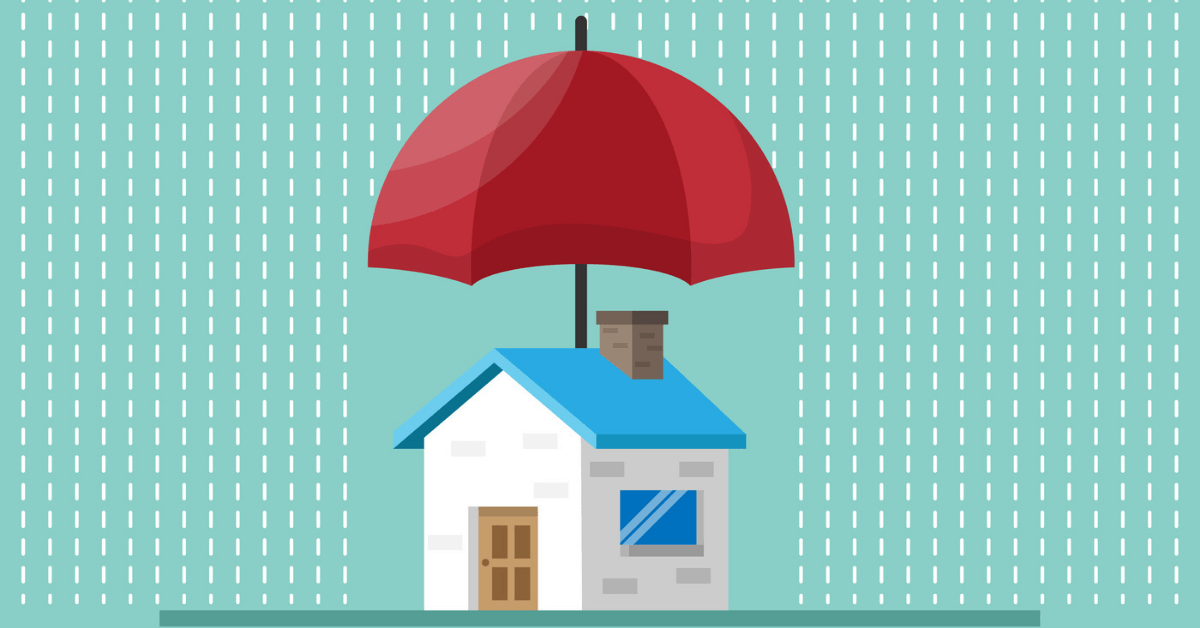Ready to ‘upgrade’ and ‘update’ your smart home security? Read on for good cybersecurity habits and tips to safeguard your home and loved ones!
From kampongs to high-rise flats and deadbolt locks to digital locks, Singaporeans have come a long way in building our dream homes. But as reflected during Singapore’s 59th birthday celebration and Total Defence 40 (TD40), there’s more that we can and must do, especially in digital protection.
In 2023 alone, scam and cybercrime cases in Singapore rose by 49.6% to 50,376. In comparison, housebreaking and related crimes stood at ~3 cases for every 100,000 individuals. In an increasingly interconnected world, safeguarding your home and loved ones extends beyond physical measures.
Simple cybersecurity measures can protect you and your family from digital attacks, theft, or damage. So, read on for our easy tips to enhance your smart home security!
Smart home security: Is it really necessary?
These days, smart fans and washing machines are the rage in Singapore. Chances are you probably have one or a few smart home products at home. While your smart home devices bring you convenience and enhanced efficiency, they could lead to cyber threats. That’s why smart home security is necessary.
Are you always forgetting your keys? Your smart lock may be the perfect solution but if it is not configured properly, others could gain unauthorised access. Smart security cameras and doorbells like the Google Nest Doorbell can allow you to monitor and control access. However, if someone gains access to your camera feed, it compromises your privacy. That’s why good cybersecurity habits are essential!
If smart home security is your first line of defence, a comprehensive home insurance that can protect you and your loved ones in both physical and digital worlds would be the ultimate backup plan. Tiq Home Insurance with an option to add on Personal Cyber Insurance can help you to stay safe online with protection beyond your home. Learn more.
Cyber threats in an interconnected world
Last year, incidents of data leaks within the public sector increased by 10% to 201 cases. Think it won’t happen to you? In 2023, the world has seen a significant rise in data breaches. The number of breached records globally has reached over 8.2 billion by October. This includes several major incidents, such as the breach of the Indian Council of Medical Research, which exposed 815 million records, and a misconfiguration at DarkBeam that led to 3.8 billion records being exposed.
Data leaks can reveal information such as your identification numbers and personal banking information. Once a criminal has these details, they can engage in all types of fraud under your name.
Even if you only have a Wi-Fi connection at home and don’t use any smart home devices, you’re still vulnerable to cyber threats. Prevention is better than cure, so practise the following tips to enhance your smart home security and safeguard your digital footprints.
Tips to enhance your smart home security
● Secure Wi-Fi Network
In our society today, almost all resident households (~99%) have internet access, while local smartphone ownership stands at 97%. While you are relatively safer on your home Wi-Fi as compared to public Wi-Fi, you’re not completely safe.
You may want to beware of Wi-Fi phishing amongst other cyber threats. Wi-Fi phishing refers to a technique of creating malicious Wi-Fi access points that appear like your trusted Wi-Fi network in an attempt to breach it and watch its internet traffic.
To secure your Wi-Fi Network, ensure your router and all smart devices have unique, strong passwords. If you have yet to change your default passwords, it is best to do so and update it periodically. Also, you should always use the latest encryption standard to secure your Wi-Fi network.
While it may seem like an overkill, it pays to be stringent when it comes to sharing passwords. Creating a separate network for guests can help to prevent unauthorised access to your main devices.
On top of that, Tiq’s Personal Cyber Insurance can insure you and your family from cyber security breaches with coverage of up to $25,000 for a year. Learn more.
● Update Firmware Regularly
Home maintenance requires regular cleaning and tidying. Similarly, when it comes to smart home devices, checking and installing regular firmware updates can help to patch security vulnerabilities (if any) and minimise cyber breaches.
To avoid missing out on the latest updates, simply turn on notifications for your smart devices such as wall sensors, remotes, switches, smart watches, computer updates, etc.
● Use Strong Authentication
Two-factor authentication (2FA) can add an extra layer of security by requiring a second form of verification. Don’t be mistaken though, it is not just for your banking apps. Most smart home devices such as Home Pod Mini, and Google Nest require 2FA to log into your account where there are confidential details.
Most systems also enable users to set up notifications for specific events to get updates in real-time. For example, you may want to get notified if someone is loitering near your home and a smart doorbell with a camera can help to detect such activities. If unsure, refer to the user manual or support website for your specific devices for detailed instructions.
Despite Singapore’s statistically low crime rates, burglary remains a significant concern, especially for residential properties. In 2022, the General Insurance Association (GIA) reported that the property insurance segment, which includes burglary claims, saw considerable activity.. Having motion-sensitive lights can be a good way to deter burglars, but with , you get peace of mind knowing that your assets and personal data are protected against cyber threats.
● Secure Smart Home Hubs
Your smart home hub controls all connected devices so it must be kept secure. Put it in a location that is not easily accessible to the children. Also, you should only allow trusted individuals to access the hub. If you need to engage professionals to do troubleshooting, stay cautious, and instead of walking away to do your things, you should stay and monitor the process.
Depending on your smart home devices, you may also want to consider investing in anti-virus security and setting up firewalls. Should you have doubts, you may want to consult a trusted professional or engage a cyber security firm
● Download apps from trusted sources
Did you know that all types of consumer Internet of Things devices are rated according to their levels of cybersecurity provisions? Before purchasing a smart home device or downloading an app, it is best to check the cyber security labelling. This can help you to identify products with better cybersecurity provisions and make informed decisions.
Also, most smart home devices have their application. When downloading applications, double check to ensure that the app is authentic. You may have come across the ‘fried chicken ad scam’ on Talking Point where a lady downloaded an app to get a food deal, which led to installing malicious software on her phone. Luckily she detected the scam in time and avoided losing money.
When accessing websites or using apps, always take time to review the requested permissions and ensure that they are necessary. Avoid ticking all fields and agreeing to all requests without reading.
● Stay protected with Tiq Home Insurance + Personal Cyber Insurance
As technology becomes an integral part of daily life, your physical and digital worlds are closely intertwined, and could lead to potential consequences should either be compromised. In addition to the abovementioned smart home security tips, it is always wise to have a backup plan, in case the inevitable happens.
Rated #1 home insurance (Seedly, Oct 2021), Tiq Home Insurance offers comprehensive coverage for your home contents, renovation, and belongings. Our 24-hour Emergency Home Assistance (EHA) also assists you in major emergency repairs such as plumbing, electricity, locksmith, and pest control issues! The best part? You can get a bundle deal when adding on Personal Cyber Insurance that insures you and your family from cyber security breaches with coverage of up to $25,000 for a year. Click here to get a quote on Tiq Home Insurance and Personal Cyber Insurance now!
[End]
Information is accurate as at 3 September 2024 . These policies are underwritten by Etiqa Insurance Pte. Ltd. (Company Reg. No. 201331905K). Terms apply. Full details of the policy terms and conditions can be found in the policy contract. The following policy is not covered under PPF: Personal Cyber Insurance.
Tiq by Etiqa Insurance Pte. Ltd.
A digital insurance channel that embraces changes to provide simple and convenient protection, Tiq’s mission is to make insurance transparent and accessible, inspiring you today to be prepared for life’s surprises and inevitabilities, while empowering you to “Live Unlimited” and take control of your tomorrow.
With a shared vision to change the paradigm of insurance and reshape customer experience, Etiqa created the strong foundation for Tiq. Because life never stops changing, Etiqa never stops progressing. A licensed life and general insurance company registered in the Republic of Singapore and regulated by the Monetary Authority of Singapore, Etiqa is governed by the Insurance Act and has been providing insurance solutions since 1961. It is 69% owned by Maybank, Southeast Asia’s fourth largest banking group, with more than 22 million customers in 20 countries; and 31% owned by Ageas, an international insurance group with 33 million customers across 16 countries.
Discover the full range of Tiq online insurance plans here.














